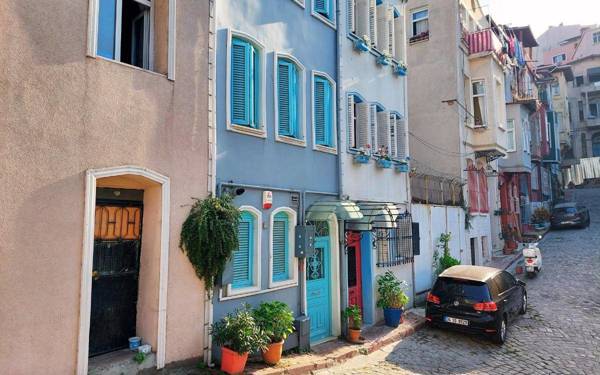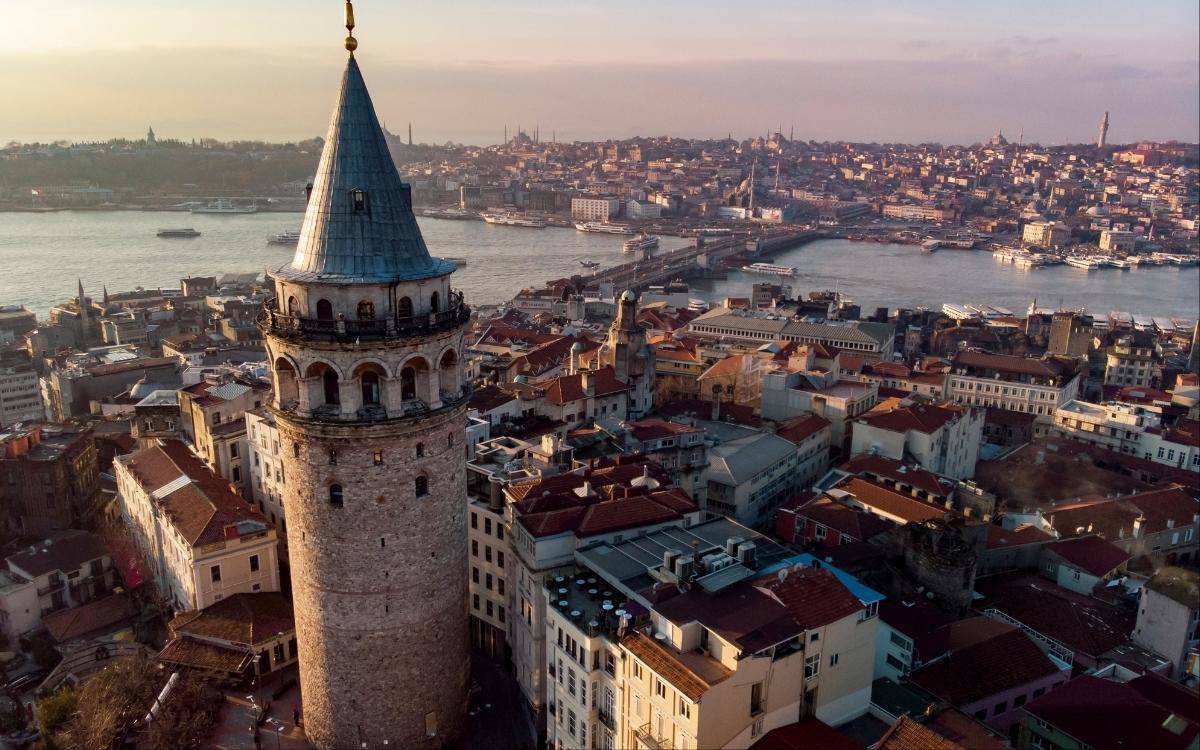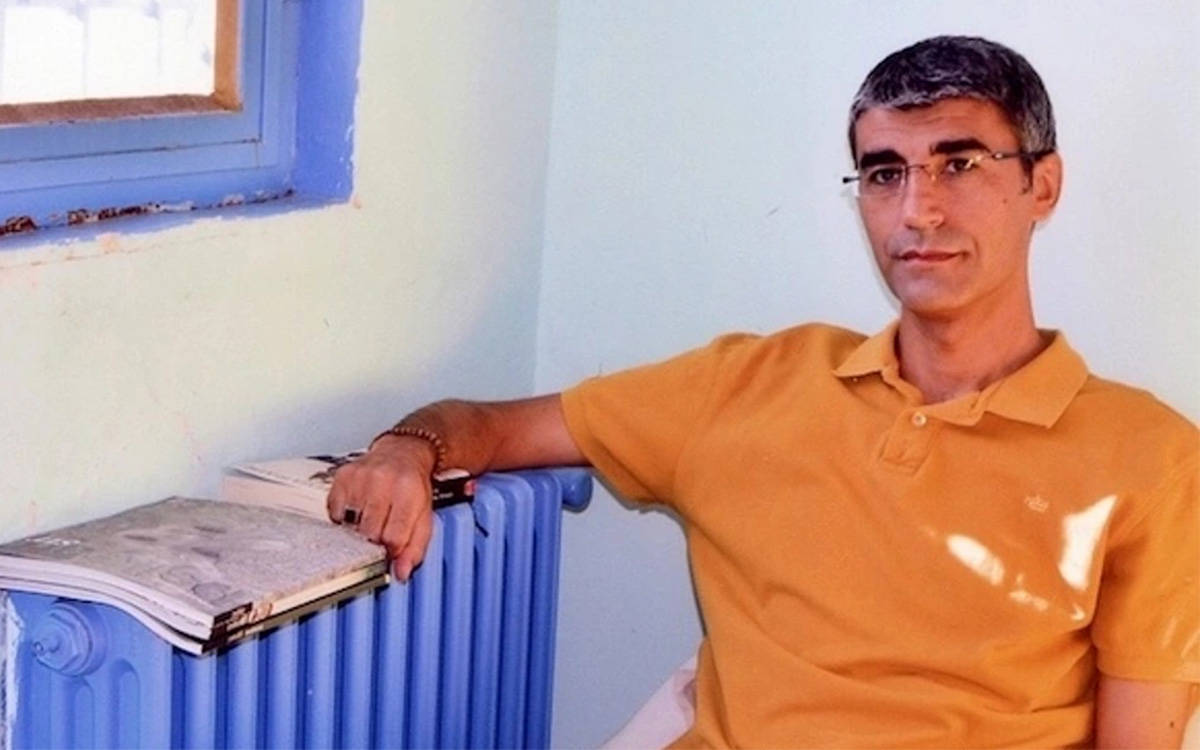The British resident, Tom, in Istanbul's popular tourist district, Beyoğlu, is engaged in housing rental through Airbnb. Meanwhile, Ahmet, a Turkish citizen started this business by renting out a spare room in his house as a student and now operates it on a much larger scale in Kadıköy, the popular destination on the city's other side. Both of them are highly critical of the new "Airbnb law," which was published in the Official Gazette last week and will come into effect on January 1.
According to both Airbnb operators who requested anonymity when expressing their views, this new law, named "Law on the Rental of Residences for Tourism Purposes," was passed "under the influence of the hotel lobby" and with the aim of "making hotels earn more money." They argue that, in general, it will negatively affect tourism revenues and the economy, as it doesn't provide a legal framework for people offering accommodation in residences as an alternative to hotels and will push this sector further into the "underground" without solving any of the existing problems.

New Airbnb law: Permit certificate made mandatory
No provision for room rentals
The law doesn't address room rentals specifically, whereas Ahmet, who operates Airbnb rentals in Kadıköy, points out that people who rent out one or two rooms in their own homes – for example, students or recent graduates just entering the workforce – are an important part of this business model. According to Ahmet, most of these individuals are unable to cover the rent or expenses of a whole house on their own, and he stresses that the law doesn't have any provision at all for those who rent individual rooms in residences.
"What will these people do?" he asks. "If this group is renting for less than 90 days, they must come under this law. However, the law doesn't provide any details about renting separate rooms. Therefore, it is unknown how this group will proceed," he adds.
Approval of all residents
The new legal regulation requires the approval of all building residents for obtaining a tourism accommodation permit. Ahmet says, "You can't get approval from all residents in any building in Turkey. I have to get the approval of someone I may not even know, or maybe have a strained relationship with in the building, which is impossible."
"The hotel lobby"
Two young entrepreneurs, one from the UK and the other from Turkey, both believe that the intention behind the new law is to "increase the revenue of hotels."
Ahmet, who believes that the law was passed "under the influence of hotel owners," says, "They have openly stated this themselves. There are statements from the chambers. They say, 'We don't want it, we want them completely blocked.'" He argues that this situation will prevent budget-conscious people from going on vacation.
Tom who has been living in Turkey since four years and in this business since two years on the other hand, believes that Airbnb is largely responsible for the introduction of this new legal regulation. He highlights that many Airbnb properties in Istanbul were running at only 20-30% occupancy at the start of the summer season, and he suggests, "If Airbnb had limited the number of properties it allowed to be active in Istanbul, perhaps by closing new listings when the overall occupancy rate fell below 50-60% across the city, they might not have provoked the anger of the hotel lobby and legislative bodies."
Is increase in housing rents one reason?
One possible reason for this regulation is the substantial increase in housing rents in both Istanbul and all of Turkey in recent years, it is being discussed. However, Ahmet considers this to be only an excuse, stating that he is within the sector and is confident that the number of available residences for housing rents will not increase.
According to him, Airbnb has gained prominence in the last 7-8 years, but this business has been around for years. He also points out that the significant increase in rents has been a recent phenomenon, occurring in the last 2-3 years, mainly due to inflation and economic conditions.
"Many countries regulate"
The young entrepreneur explains that, in fact, he has been waiting for legal regulation in this field for years and wants to operate in this business officially, paying taxes. However, he shares his experience that, especially in Kadıköy, where all three central neighborhoods have been declared protected areas, it is impossible to obtain renovation permits or hotel licenses.
Ahmet, who argues that legal regulations regarding the Airbnb business model have been "easily regulated" in many countries, says:
"For example, this business is conducted with permits in Dubai, and in many countries the same way. Most countries are legalizing it. Like hotels, they also pay taxes, for example, currently 8% plus 4% for a total of 12% VAT. These people also pay their taxes this way. They simply establish a company and can do this business without facing very detailed demands from the government."
"Hotels will win 10%, Turkey will lose 20%"
Tom who has been in Turkey for 4 years and has been operating an Airbnb business in Istanbul's Beyoğlu district for 2 years, believes that the new legal regulation will have a greater impact on those operating with small budgets.
According to Tom, the strict regulations introduced by the new law will affect small-scale operators who rent a spare room in their homes the most. These operators, who seek to earn additional income, will have difficulty coping with the extra costs resulting from the new regulations. In contrast, larger operators and property management companies will have an advantage in finding ways to absorb these additional costs and continue their operations.
Both Tom and Ahmet emphasize that Airbnb was initially founded to offer a business model that allows homeowners to rent out a spare room and make extra income, while giving travelers a more home-like experience. They argue that the people most affected by this law will be those who provide accommodations in the way Airbnb originally intended.
Ahmet, who operates an Airbnb business in Kadıköy, points out that none of the customers in this sector are wealthy individuals. He believes that the aim of the law is to discourage tourists from staying in private residences and push them towards hotels, where they will pay higher prices. However, he acknowledges that this legislation won't resolve the issue and will only drive this business further underground. And if low-budget options for tourists disappear, they may choose not to visit Turkey at all, resulting in a negative impact on the country's economy.
"So," he says, "hotels will make 10% more money, but Turkey might lose 20%."
İstanbul Metropolitan Municipality Beyoğlu Airbnb Analysis and Impact Assessment Report
Prepared within the scope of the Beyoğlu Is Yours Project-Beyoğlu Strategic Plan by the İstanbul Metropolitan Municipality (İBB), the Beyoğlu Airbnb Analysis and Impact Assessment Report dated October 24, 2022 was created based on the spatial analysis of open data sets for the year 2021 from insideairbnb.com to understand Airbnb activities in the Beyoğlu district. The report aims to contribute to the strategic plan by identifying the users, local spatial impacts, issues, and needs of the Airbnb system in Beyoğlu, which has gained prominence alongside topics such as tourism, the sharing economy, and gentrification.
In the study, İstanbul Airbnb data available on the insideairbnb.com website were compared with Airbnb data from New York, Berlin, Amsterdam, and Barcelona to emphasize the importance of Airbnb usage in İstanbul. According to the report, Istanbul ranks second among these cities with 23,159 activity records.
Although Beyoğlu is not included in this ranking due to its district status, it is noted that it has a significant Airbnb volume with 6,325 activity records, surpassing Amsterdam.
According to the conclusion section of the report, Airbnb in Beyoğlu constitutes 28% of Airbnb listings in İstanbul. Its development over time shows parallelism with İstanbul as a whole.
Furthermore, the conclusion section of the report suggests that Airbnb has become a tourism business model, especially in areas of Beyoğlu with high levels of multiple Airbnb listings.
The report indicates that the presence of Airbnb usage beyond the tourism land use areas determined by the İBB demonstrates that Airbnb plays a significant role in covering a substantial portion of the tourism capacity in Beyoğlu, along with tourism areas.
Additionally, the report's conclusion section highlights the spatial effects of Airbnb in Beyoğlu outside of tourism land use, emphasizing the impact of the tourism business model developed within residential areas on property values and the potential for gentrification in many neighborhoods.
NOTE: The officials from the Istanbul Metropolitan Municipality's Directorate of Urban Planning and Urbanization where the above Beyoğlu Airbnb Analysis and Impact Assessment Report was prepared and whom we contacted by phone, stated that they were not consulted in the preparation of the "Airbnb law." We attempted to reach officials from the Ministry of Culture and Tourism regarding criticisms of the law but were unable to do so.
* The names of the individuals we interviewed were changed at their request to protect their anonymity.
(PE)










.jpg)
.jpg)